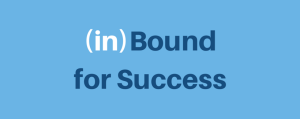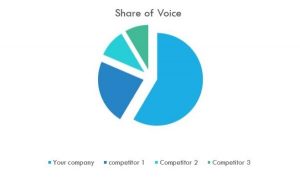
When it comes to the interview process, we all want to believe our judge of character will be a good enough predictor to peg candidates who will succeed and even flourish in our organizations. It’s natural to feel that by interacting with someone directly, you’re going to understand their ability to do well on the job.
However, when we take a step back to examine the data around the accuracy of face-to-face interviews, it becomes painfully clear this isn’t always the case.
To put it in perspective, columnists Dan and Chip Heath explain the qualities of an effective interview (or a not-so-effective one) by noting, “Interviews are less predictive of job performance than work samples, job-knowledge tests, and peer ratings of past job performance. Even a simple intelligence test is dramatically more useful.”
In other words, an in-person interview isn’t as accurate as many hiring managers think it is.
Common Types of Interviews
The interview is the most popular selection procedure in the world, and has been for hundreds of years. However, when it comes to measuring core competencies of candidates, just because a method is the most common doesn’t mean it’s the most accurate.
This isn’t to say in-person interviews are completely ineffective. However, it’s important to understand some of the more common types of interview strategies being utilized, and how they can help (or hurt) an organization.
- Unstructured Interview: In an unstructured interview, hiring managers may ask different questions from different applicants. These types of interviews are more like a conversation, and usually don’t involve a script.
- How well it predicts performance: Unstructured interviews have been shown to have lower predictive power than other types of in-person interviews. Additionally, reliability is also an issue; an unstandardized interview with different questions leads to a wide range of different answers.
- Situational Interview: In this type of interview, the interviewer describes a scenario that could potentially occur, then asks the candidate what he or she would do in that situation. The candidate’s answers are scored using a guide constructed by job experts.
- How well it predicts performance: Alternative types of assessments have been shown to be more accurate in predicting a future employee’s success.
- Structured Behavioral Interview: The interviewer asks candidates standardized, often scripted questions about how they handled situations in the past that were similar to scenarios they might encounter on the job. Responses are scored using specific rating scales.
- How well it predicts performance: Structured interviews are far more successful in helping predict the outcome of a candidate’s success than unstructured interviews.
As the graphic below illustrates, there are a number of benefits and challenges that arise with the in-person portion of an interview process.

While in-person interviews can be subject to a number of pitfalls including an interviewer’s lack of training or unconscious biases, there is also helpful information that can be gleaned from a properly-structured interview.
3 Strategies to Improve Your Interview Process
A majority of people who are interviewing candidates have no formal training when it comes to a Q&A with candidates. In fact, 66% of interviewers are not trained to conduct interviews. Additionally, 93% of the communication that takes place during an interview is nonverbal, which can lead to more focus on what’s unspoken than what is. But fear not, because there are a few ways your organization can avoid common pitfalls.
1. Train Your Interviewers
Knowing what questions to ask during the interview process can help narrow down the candidate pool. Questions to assess conflict management can be incredibly helpful in determining how well an applicant will be able to handle frustrated customers as well as the varying dynamics of a challenging environment.
Though many interviewers have a tendency to respond well to candidates who are engaging, energetic, and have personalities similar to their own, the best way to get down to the brass tacks is to make sure interviews are structured with questions designed to get minimize the ability of a candidate to tell a fiction.
2. Standardize Your Interview Process
Research shows that structured interviews are 81% more accurate than unstructured ones. As organic and natural as a conversational interview feels, it doesn’t always provide a clear sense of how well a candidate will perform the job. The closer you can get to a level of standardization, the more accurate interviews will become.
Some basic ways to standardize an interview include:
- Have a clear script with structured interview questions
- Develop questions that focus on specific core competencies
- Utilize a standardized ratings scale
Though structured interview questions can seem a little mechanical, they are valuable in that they help keep an interview focused and on-track. Additionally, asking every candidate the same types of questions ensures consistency among interviews, giving interviewers a frame of reference they can use to compare candidates fairly.
3. Create an Interactive Job Simulation
It’s hard to measure an applicant’s ability to handle high-pressure situations or multi-task in a single interview. The best way to see if candidates are a good fit for the role and environment they are interviewing for is to put them directly into that role – or something very close to it – with results that can be measured and assessed. More in-depth than a trial day, assessments like job simulations are a sophisticated way to provide valuable insights about candidates and identify core skills that are required for the specific role a candidate is interviewing for.
Business & Finance Articles on Business 2 Community
(161)
Report Post







